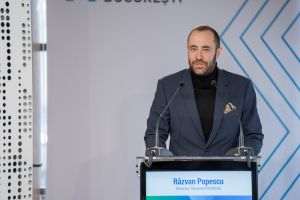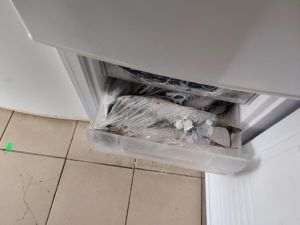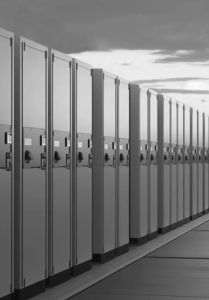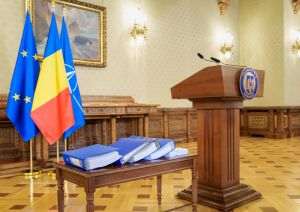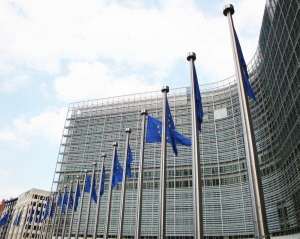• (Interview with Alexandru Stânean, general manager of TeraPlast)
• TeraPlast is aiming for a turnover of 208 million euros in 2019
• "We have made it a goal for us to have sustained growth"
• Last year, the company's exports accounted for 20% of the turnover
• "Our objective: to increase our regional presence"
Reporter: How would you characterize the investment environment in Romania?
Alexandru Stânean: On the investment side we have mixed signals. There are still significant investments, which is seen, for example, in the evolution of the construction sector, which is growing. On the other hand, we feel a reservation about the prospects of the medium-term investment environment. A country cannot develop economically in the long run without major public and private investments. When the private environment has reservations, the state must intervene with public investments, rebuild confidence. Investor confidence can also be gained through predictability and consultation. In recent years, the business sector plans have been influenced by the frequent changes in legislation which were often negative, and many businesses have had to adapt to the changes so that the impact on their activity is as low as possible.
Reporter: What are the obstacles and problems you face in your activity? What solutions do you see for solving them?
Alexandru Stânean: Operating on the construction market, TeraPlast is influenced by the multi-annual seasonality of the sector. Every cycle, we have two years in which the sales, especially those for the infrastructure sector, are very small, followed by another 2-3 years in which the investments are so big that they exceed the supply in Romania. In order to maintain the annual growth rate we seek on an annual basis and to meet investor expectations, we have diversified our product portfolio to reduce dependence on the public sector. Also in the context of the market which we operate on, we are facing a workforce shortage, like many other companies. Companies develop programs and benefit packages to attract staff, but we are competing for fewer and fewer potential employees, as five million Romanians are working abroad. Within the TeraPlast Group, in addition to the programs and packages developed by the colleagues from human resources, the degree of automation in factories has been increased, and TeraPlast and Wetterbest are certified personnel trainers.
Reporter: How is your work with the banking system? Are you planning to use the stock market for financing?
Alexandru Stânean: Our group has always had a very good relationship with banks, over time we have developed relationships based on trust and collaboration. As we are constantly developing our businesses, we have always relied on the support of the financing banks. Our history so far, from this point of view, indicates a prudent management of debt, and the Group's results this year have reduced it to a conservative level.
Reporter: Have you ever benefited from government aid in your investments? What projects did you develop with the support of the state and what did such support consist of?
Alexandru Stânean: Last year we have submitted and won three bids for investment projects co-financed via a government aid scheme, for three of the Group's companies: TeraPlast, Wetterbest and TeraGlass. The total value of the projects is 15 million euros, and the total value of the state aid is about 6.8 million euros. The three projects are aimed at expanding production capacities and will create 159 jobs. TeraPlast SA is expanding its output capacity for polypropylene indoor sewer pipes and will bring an innovation to the Romanian market - halogen-free, fire-resistant granules (HFFR). Wetterbest is building a new production unit with government aid and will relocate, through its own effort, the production facility of Băicoi, Prahova county, and TeraGlass will benefit from a new, fully automated production flow for PVC windows and doors. The implementation of the projects started in the fourth quarter of 2018. The projects will be finalized by the end of 2019 and next year we will see their benefits.
This is the first time we are accessing these funds. The first project submitted for co-financing through the state aid scheme was submitted in 2016, but it was not approved. At that time we chose to partially implement the investment, using our own funds. This meant a smaller project and a longer time to complete the investment. However, we now have, three years later, TeraPlast Recycling - the largest rigid PVC recycler in Romania and in the top 10 in Europe. In this area, state support should come on the more rigorous implementation of PVC waste collection and management side, and beyond.
Reporter: How did the fiscal measures passed in the beginning of the year affect you?
Alexandru Stânean: Government Emergency Ordinance 114 was a good intention transposed ambiguously into legislation and its implementation was even more flawed. As it didn't apply to all construction materials segments, imbalances between similar or even identical positions were created within our Group, as the measures were only applicable to some of the companies. On the other hand, some customers, construction companies, complain that their beneficiaries did not accept the settlement of the recalculated bills of materials according to the new labor rates, which is causing them financial problems.
Reporter: What is your assessment of our capital market?
Alexandru Stânean: The Romanian stock market, like other frontier and emerging markets, has higher volatility than developed markets and many stocks are undervalued. The main problem is the small number of actors involved. We do not have enough individual investors because, due to the lack of financial education, people who have savings keep them in banks at very low low interest rates, below the inflation rate, while the stock exchange returned 40% this year. At the same time, we don't have enough listed companies. We are among those who would like to see other Romanian companies decide to get listed on the Stock Exchange and who consider that step a natural one for the mature companies. There are Romanian entrepreneurs who have developed extremely interesting businesses and could attract new investors to the market. We shouldn't just continue to expect the government to list the companies in the portfolio.
Reporter: What are the advantages / disadvantages of being listed on the BSE?
Alexandru Stânean: Getting listed was a necessary step for the company and also an inspired decision, considering the macroeconomic environment at that time. The TeraPlast IPO of 2008 was the largest IPO of a Romanian company with private equity, and for eight years that performance has not been matched. At that time we raised 14 million euros, which made a decisive contribution to the project for the relocation of production facilities from Bistrita to the TeraPlast Industrial Park in Sărăţel, which has a surface of over 200,000 square meters. This year we have celebrated 11 years since the IPO on the BSE and we still believe that getting listed has helped us grow and become stronger.
Currently, our Group is the largest Romanian manufacturer of construction materials, with growing business and exports in 25 European countries.
The implementation of corporate governance at TeraPlast was another significant advantage that the listing brought. Although we are essentially an entrepreneurial company, we have the processes of a multinational company.
Reporter: What is the evolution of the market segment you operate on?
Alexandru Stânean: The plumbing market has been severely affected, starting with the second half of 2016, by the dramatic decrease in infrastructure investments. We have market studies that say that in 2016-2018 the plastic pipe market halved because of that. Although the residential sector had very good results, it could not compensate for the declines in infrastructure. Starting with the last quarter of 2018, we are seeing an abrupt recovery of the infrastructure sector, which led to this year's results.
The market for joinery profiles is estimated at 197 million euros in 2019, up 3.6% compared to 2018. For window makers, export is the main sales development direction, with Romania being, after Poland, the largest producer of PVC windows and doors.
TeraPlast is constantly the leader of the Romanian market for laminated and rigid granules. That segment allows the heaviest customization of the solutions offered.
Reporter: What turnover did you achieve in the first nine months of the year, compared to the same period in 2018 and what are your expectations for the whole year?
Alexandru Stânean: The acceleration of the infrastructure segment in 2019 is felt in the activity of the Plumbing line. In the first nine months of the year, the TeraPlast Group recorded the best results ever, due to the dynamics of the construction market and the operational efficiency measures. The turnover increased 22% YOY, exceeding 719 million lei, while the EBITDA increased 29% compared to the first nine months of 2018, to over 68 million lei. The best results posted by TeraPlast and TeraPlast Recycling, with a 28% increase in turnover, and respectively a 49% increase in profitability.
For 2019, the TeraPlast Group is targeting a turnover of 208 million euros and an EBITDA of over 18 million euros. The results of the first nine months are in line with the budget and give us confidence that we will achieve the proposed goals.
Reporter: What market share do you have and what is your opinion on the competition in the field?
Alexandru Stânean: The goal we have set for each company in the group is to have a sustained growth, both in terms of market share and business performance. In the case of TeraPlast SA, we are market leaders in the granules and outdoor PVC sewer systems. TeraSteel is the market leader in polyurethane foam insulation panels in Romania and, together with TeraSteel Serbia, one of the largest suppliers of sandwich panels and galvanized structures in Central and Eastern Europe.
Wetterbest is the second largest metal tile maker in Romania, both in terms of volume and sales. On the thermoinsulating joinery segment we are operating in a market with favorable prospects, made up of many players.
Regarding the competition, it varies depending on the market we are in. Aside from the thermal insulation joinery market, the trend tends to be the same: the largest 4-5 players on each segment cover most of the market and constantly develop their solutions to better align with the project requirements. and market trends.
Reporter: What is your output capability and how much of that is exported?
Alexandru Stânean: At the level of the TeraPlast Group, exports account for 20% of the turnover in 2018. We export to 25 European countries, including Germany, Austria, Hungary, Slovenia, the Czech Republic, Slovakia, Italy, Bulgaria, Serbia or Belgium. The companies with the largest export activity within the group are TeraSteel and TeraGlass, with a proportion of over 45% and 75%, respectively. Our group owns several production units, each outfitted with state-of-the-art equipment, to the highest standards.
Reporter: What investments do you have in progress and what budget have you allocated in this regard?
Alexandru Stânean: This year, the Group's investment budget of over 20 million euros mainly focused on the three projects to expand the production capacities of TeraPlast, Wetterbest and TeraGlass. The three projects, co-financed by the state aid scheme, amounted to 15 million euros in total, and their benefits will be visible starting next year. Thus, we develop our product portfolio, in the case of halogen-free granules, and increase our production capacity in terms of complete roof systems, polypropylene pipes for indoor sewers and PVC windows and doors.
Aside from those three projects we also have the annual amounts invested in the maintenance and modernization of the existing equipment.
Reporter: How is your activity abroad going? Do you have any mergers / acquisitions planned?
Alexandru Stânean: The TeraPlast Group is the largest Romanian manufacturer of construction materials and currently operates in 25 European countries. Externally, our objective is to increase the regional presence by developing the distribution network. Regarding the companies of the Group, we have TeraPlast Hungary which distributes locally the products of the Joinery Profiles division and the TeraSteel factory in Serbia. The latter produces self-supporting sandwich panels and plated sheet and is one of the most important suppliers on the regional market (Central and Eastern Europe). We are open to growth opportunities that we carefully analyze, whether it is the distribution network or production units, both locally and regionally.
Reporter: What is the valuation of the profiles market and what is your opinion on its evolution?
Alexandru Stânean: Specialized studies evaluate the construction materials market at about 2.6 billion euros in 2019. That means about one third of the construction market. After two not so stellar years, the construction works market began growing in 2019. After the first nine months, compared to January-September 2018, the total volume of construction works increased 22.1% as an adjusted series. The largest increases were seen in non-residential buildings (33.7%) and residential buildings (30.2%). Romania is behind the states of the European Union in terms of every construction indicator: square meters of logistics spaces or shopping centers per inhabitant, the age of the housing inventory, the access to water and sewer networks, as well as their age, so the market will surely have a strong upward trend in the medium and long term, because we have a lot of work to do to catch up to the EU countries or even the neighboring countries.
Reporter: Thank you!







